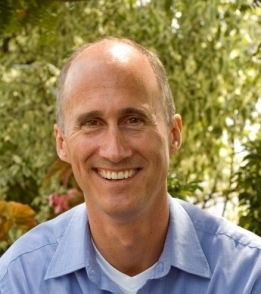Adaptive Reuse And Citizen Engagement for Urban Sustainability
Geoff Cape delivers the 2015 Frizzell Family Memorial Lecture on the importance of community engagement in transforming the urban environment.
Toronto, like most great cities, emerged from the ground. Toronto is defined by red, orange and yellow brick — quarried from our river valleys. Brick reinforces our sense of place because it comes from the landscape….but a “sense of place” is not a static idea locked in stone. Place is constantly changing as it is interpreted, reinterpreted and engaged with by the people. I will highlight two “place making” success stories that have succeeded because the community was engaged as a partner in the process.
In 2010 we opened Evergreen Brick Works – a crazy collection of 16 old buildings in the middle of Toronto largest river valley. This is the place that produced 43 million bricks each year and helped build our city. Today it is something different – a place for people, a place where active community programming (markets, camps, theatre, exhibitions, conferences and office space) contribute to a unique experience. The design and development of this project was inspired by by the communities we worked with to develop it – and by the desire to do something new and different. As Jane Jacobs has said “old ideas need new buildings but new ideas need old buildings”. No two visits to this site are the same because the space is constantly changing as structures are moved, reorganized, or woven together. The design of this space began with a simple framework and it evolves through an active partnership with the community. It is working well for almost 500,000 visitors each year.
Toronto also has a remarkable network of 6 river valleys, hundreds of tributaries and a web of over 44,000 acres of protects ravines that touches every neighbourhood across the city, rich and poor. Hidden from sight, this web of green modestly defines our city. Unplanned, unconnected and often unloved, these spaces are now the subject of an enthusiastic rethink. It will start with a vision for the system, and it will grow in partnership with the community. Master plans, design studies, art, programming, and quiet walks will all combine to build the narrative for this unique system that helps us to better understand ourselves as much as it helps to define Toronto globally.
This event is part of the Frizzell Family Speaker and Learning Series, which commemorates the life, accomplishments and aspirations of Alexandra Frizzell by engaging students in the fields of agriculture, environment and health through social science inquiry.
Cosponsored by The College of the University of Chicago, Chicago Society, Green Economics Group, Environment, Agriculture and Food Group, Program on Global Environment, and ΑΩΠ.
